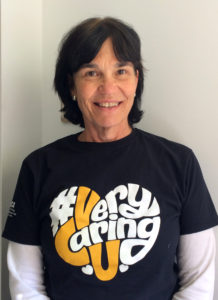September is National Recovery Month. So What Does Recovery Look Like, Anyway?
 As we approach National Recovery Month, CARITAS Board member and recovery specialist Linda Hancock, FNP, PhD shares her definition of recovery…
As we approach National Recovery Month, CARITAS Board member and recovery specialist Linda Hancock, FNP, PhD shares her definition of recovery…
I have had the privilege of working with people in recovery for the past decade, I know that recovery is something to be admired and respected. From my view “on-the-outside-looking-in,” I believe recovery is an awe-inspiring way to live a meaningful life.
While no two paths to recovery are the same, there are consistent patterns that emerge. The chronic disease of substance use disorder is horrifically difficult to survive. It challenges those with the disease and the people who love them. This disease takes much, but the struggle gives much, too. While those of us without this disease can take life for granted, people in recovery must work every day to learn more about their disease and to stay clean and sober. Self-awareness, honesty and mindful presence are essential.
I remember an 18 year old in recovery saying his sponsor had taught him to “keep his head where his feet are.” It was so wise and yet, so young. Wise living is a necessity to live in recovery. People in true recovery cease to take things for granted and gratitude is a fruit of their struggle.
Recovering people live in community and do “service” for that community and others. Despite their fatigue and personal schedules, when someone has a need, people in recovery pitch in and reach out. They live with the humble realization that substance use disorder is a disease prone to relapse. If someone with cancer has a recurrence of that chronic disease, people bring casseroles. If someone in recovery relapses, they face anger and judgement from others and themselves. It takes honesty and courage to be in recovery.
What is recovery? As with all chronic diseases, it is both a curse and an opportunity for great blessings. I have learned so much from being friends with those in recovery. I envy what they have and often wonder if I would have the courage to live as meaningfully should I develop the disease. Staying close to them, helps me think daily about my own life. There is no doubt in my mind that recovery is to be admired and respected.
